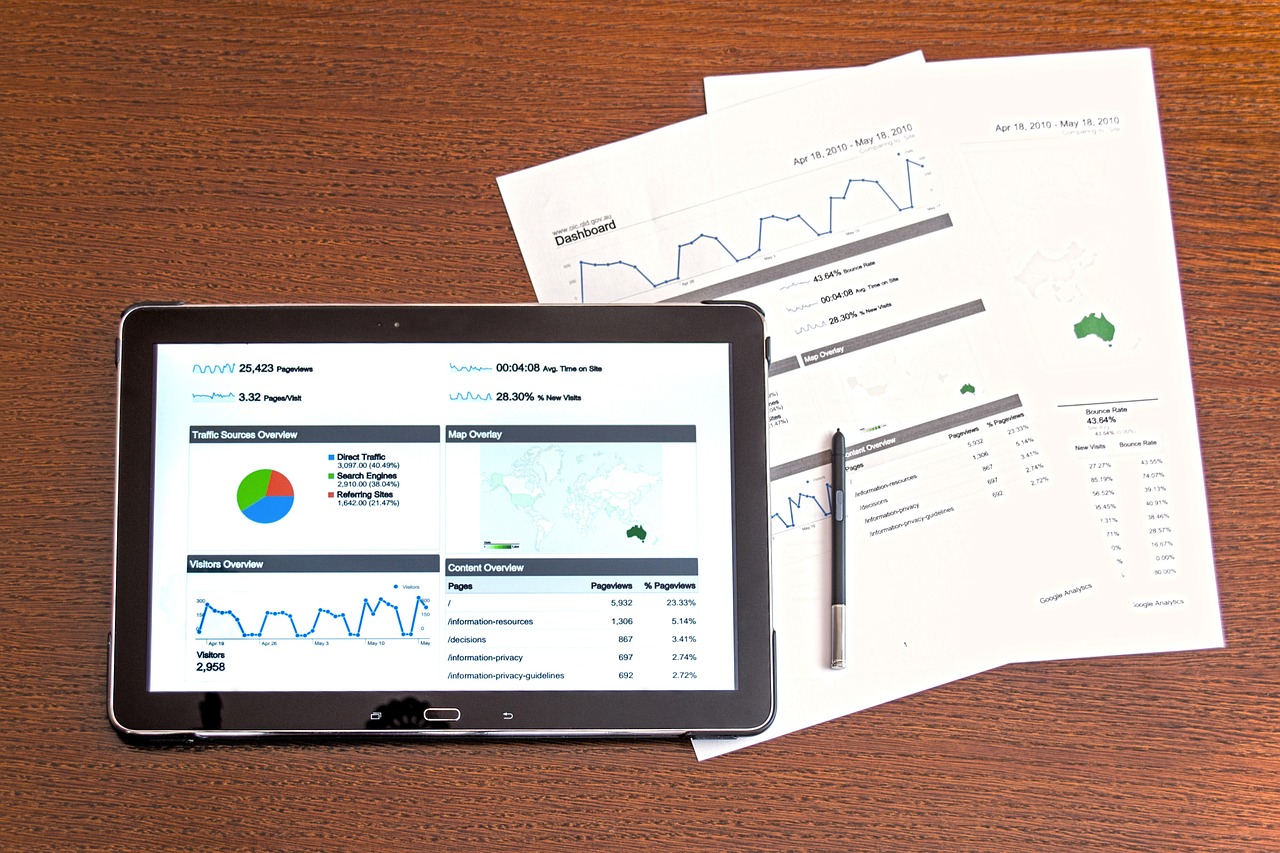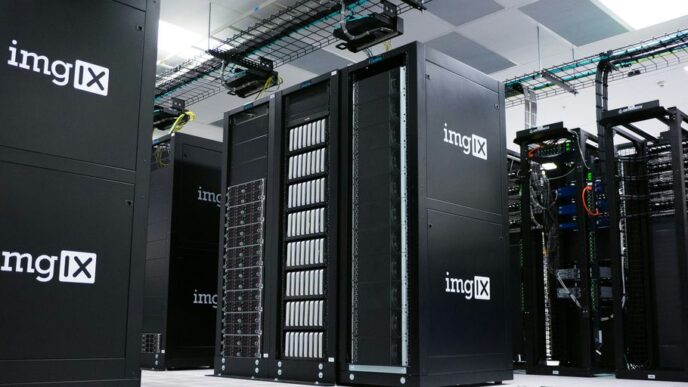In today’s world, the ability to analyze and interpret large amounts of information has become essential for businesses looking to stay ahead. From marketing to finance and beyond, companies are turning to sophisticated data analysis techniques to gain a competitive edge. In this blog post, we’ll explore how data analysis is transforming industries across the board and look at some real-world examples of businesses that have successfully leveraged this powerful tool to drive growth and innovation. So whether you’re a marketer, a financial analyst, or simply someone interested in cutting-edge technology trends, keep reading.
Introduction to Data Analysis
Data analysis is critical for businesses in all industries to make informed decisions, optimize operations, and improve marketing and financial performance. Data analysts use a variety of methods to collect, clean, process, and analyze data from multiple sources. This data is then used to generate insights that can help businesses improve their bottom line.
The field of data analysis is constantly evolving as new technologies and methods are developed. Businesses must stay ahead of the curve to remain competitive. Data analysts must be able to adapt their skillset to keep up with the latest trends.
There are many different types of data analysis, each with its own strengths and weaknesses. The most common types of data analysis are descriptive, predictive, and prescriptive. Descriptive analytics focuses on understanding what has happened in the past. Predictive analytics uses historical data to identify patterns and trends that can be used to forecast future behavior. Prescriptive analytics takes things one step further by not only predicting what will happen but also recommending actions that should be taken to achieve the desired results.
Data analysis is an essential tool for businesses in all industries. It can be used to understand past performance, predict future trends, and make recommendations for improving business operations.
Uses of Data Analysis in Different Industries
There is no doubt that data analysis has had a profound impact on many industries, transforming how businesses operate and make decisions. Here we explore some of the key ways in which data analysis is being used across different industries, from marketing and finance to healthcare and manufacturing.
In the world of marketing, data analysis is used to track customer behavior and preferences, allowing businesses to tailor their marketing strategies accordingly. By understanding how customers interact with their products or services, businesses can optimize their campaigns for maximum impact.
In the financial sector, data analysis is playing an increasingly important role in risk management. By analyzing past data, banks and other financial institutions can identify trends and patterns that could indicate future risks. This helps them make more informed decisions about where to invest their money and how to protect themselves against potential losses.
Healthcare is another area where data analysis is having a major impact. By analyzing patient records, doctors can identify patterns that could indicate potential health problems. This information can then be used to develop targeted treatment plans for individual patients.
Manufacturing is another industry that has been transformed by data analysis. By tracking production data, manufacturers can identify issues and bottlenecks in their processes. This information can then be used to improve efficiency and quality control, leading to better products and lower costs.
How Data Analysis is Transforming the World
Data analysis is one of the most powerful tools available to businesses and organizations. It allows them to understand their customers, target their marketing, and make better decisions about where to allocate resources.
As data becomes more accessible and easier to analyze, its impact is being felt across a wide range of industries. Here are some of the ways data is transforming the world:
Marketing: Data analysis is helping marketers better understand their customers and target their advertising more effectively.
Finance: Data is being used to create more accurate financial models and improve risk management.
Healthcare: Data analysis is being used to improve patient outcomes and reduce costs.
Transportation: Data is being used to optimize routes and schedules, reducing congestion and saving time and money.
The Benefits of Using Data Analysis
Data analysis has transformed industries by providing insights that were previously unavailable. Marketing departments use data analysis to understand consumer behavior and target their advertising. Financial analysts use data to identify trends and predict future stock prices. Data scientists use data to develop new products and services.
The benefits of using data analysis are numerous. In addition, data analysis can help identify opportunities and optimize processes. Data analysis can help individuals and organizations better understand their customers, employees, and other stakeholders.
How to Utilize Data Analysis for Your Business
Data analysis has become increasingly important for businesses in a variety of industries as the volume of data collected has grown exponentially. By understanding how to utilize data analysis, businesses can gain insights into their customers, operations, and finances that would otherwise be hidden.
There are several different ways to analyze data, but some common methods include statistical analysis, regression analysis, and time series analysis. Statistical analysis can be used to understand relationships between different variables; regression analysis can be used to identify trends and predict future behavior; and time series analysis can be used to identify patterns over time.
Businesses can use data analytics to improve their marketing efforts by understanding which customers are most likely to respond to certain messages and offers. They can also use data analytics to improve their operations by identifying inefficiencies and bottlenecks. And finally, businesses can use data analytics to better understand their finances by identifying areas of waste and fraud.
Data analytics is not a silver bullet that will solve all of a business’s problems. But when used correctly, it can be a powerful tool for making informed decisions that can help businesses improve their bottom line.
Potential Challenges and Risks of Data Analysis
As industries increasingly rely on data to drive decision-making, the potential challenges and risks of data analysis must be carefully considered.
Data analytics can be a powerful tool for understanding and optimizing business operations. However, like any tool, it comes with its own set of potential challenges and risks.
One of the biggest challenges with data analytics is ensuring that the data is accurate and reliable. Data can be collected from a variety of sources, including surveys, customer transactions, social media, and web analytics. Each of these sources can have its own set of biases and errors that can distort the data.
Another challenge is dealing with the sheer volume of data that is now available. With more and more businesses collecting data, it can be difficult to sift through all of it to find the most relevant information. This problem is compounded by the fact that data sets are often unstructured and messy.
There is always the risk that businesses will misuse data analytics. In some cases, companies may use data to make decisions that are not in the best interest of their customers or employees. In other cases, they may use data in ways that violate privacy laws or ethical standards.
Despite these challenges, data analytics can be a valuable asset for businesses if used correctly. By understanding the potential risks and challenges associated with data analytics, businesses can take steps to mitigate them.
Conclusion
Data analysis has become a critical tool for companies of all sizes, from marketing to finance. With the right data analysis tools and strategies in place, organizations have been able to uncover new insights about their customers and operations that can help them stay competitive in an ever-changing market. By leveraging data-driven decisions, businesses can make more informed decisions faster than ever before, helping them remain agile and responsive to shifting customer needs. Data analysis is transforming industries around the world and will continue to do so in the years ahead.













